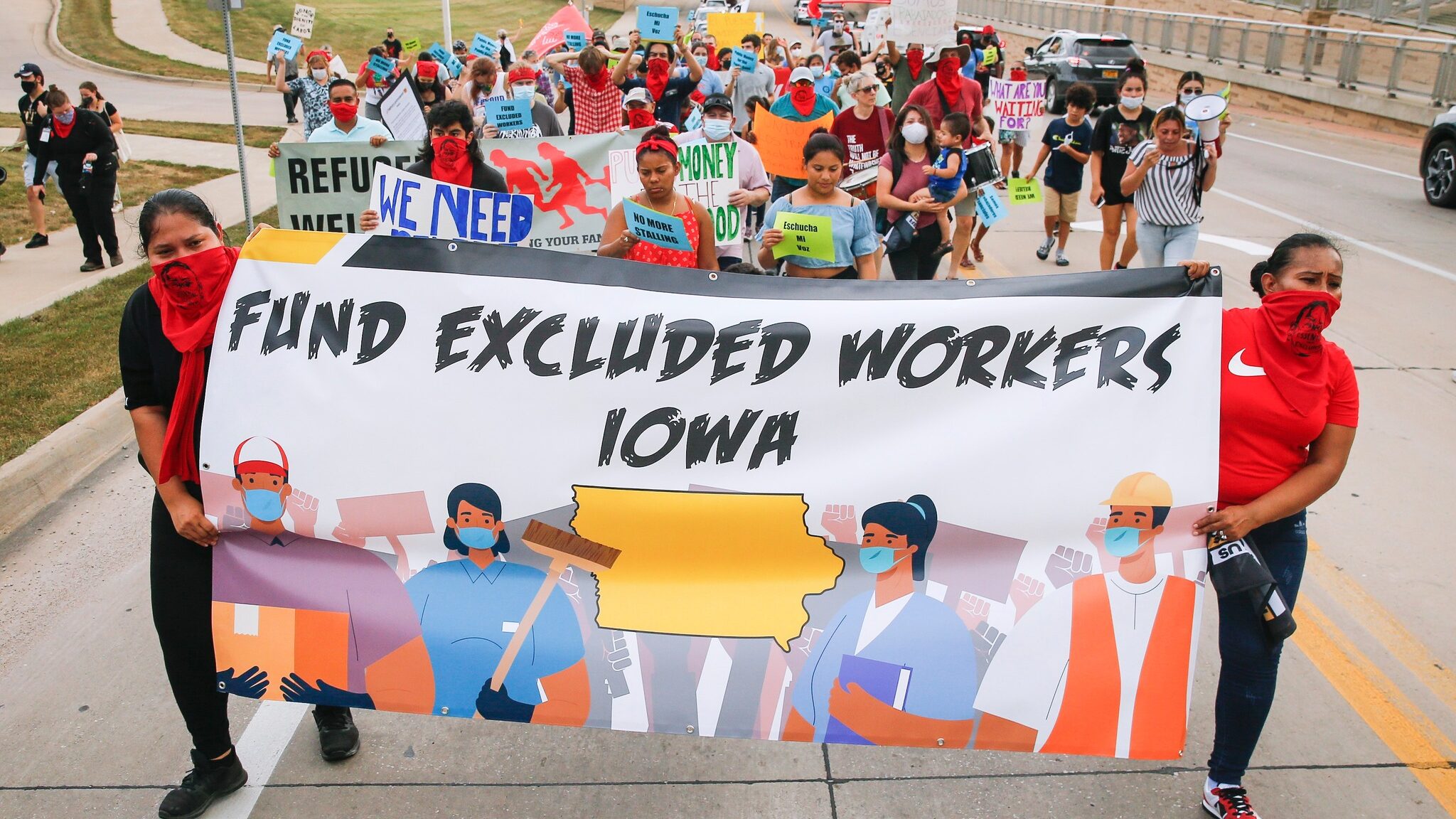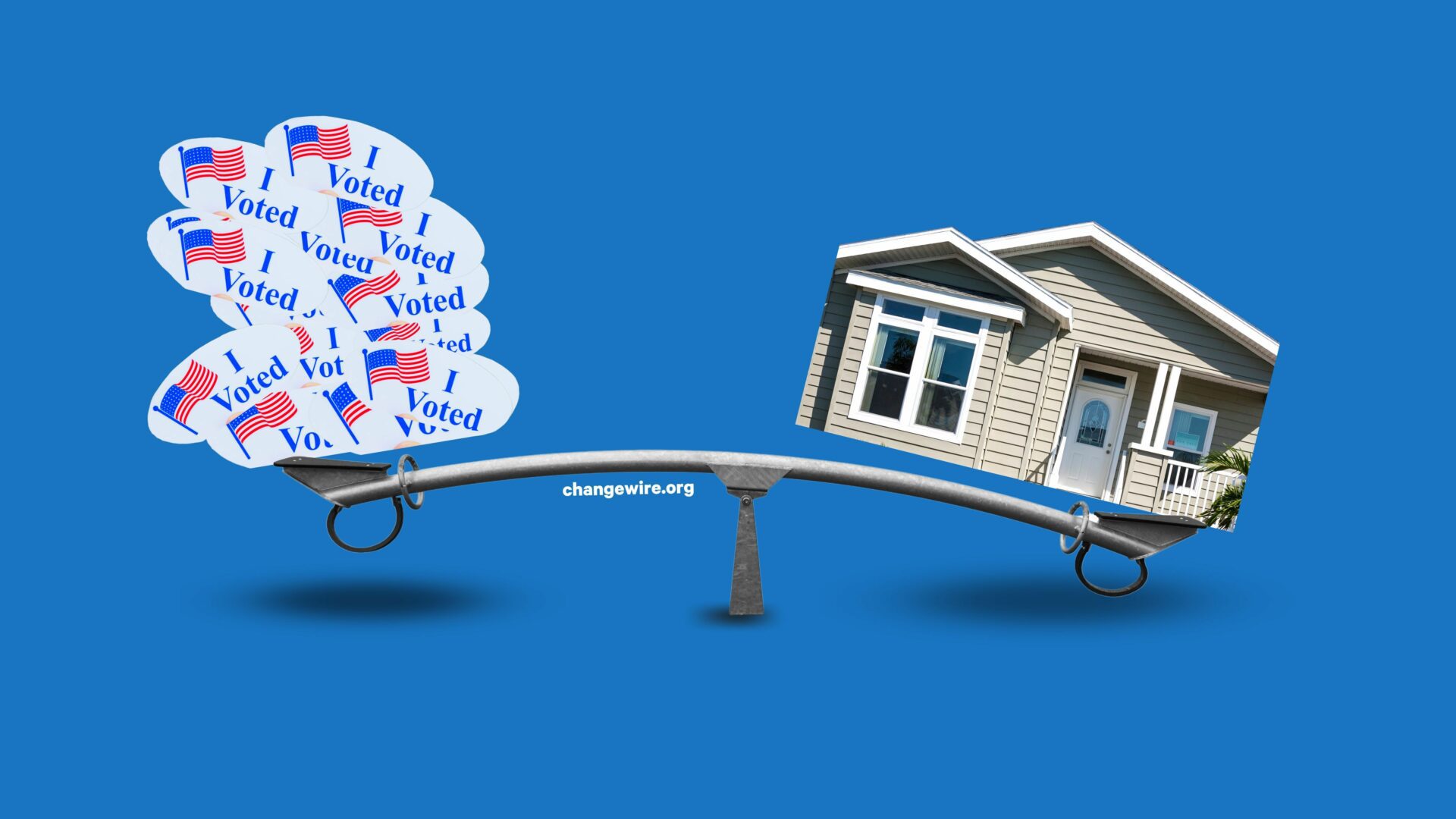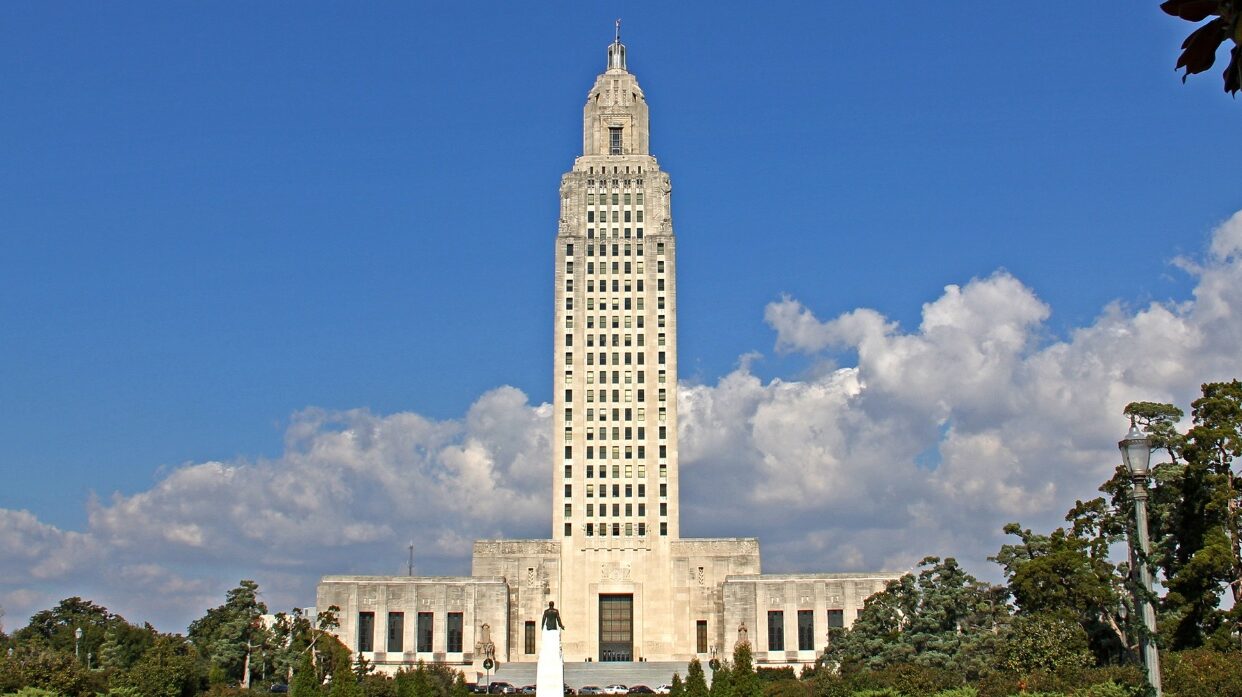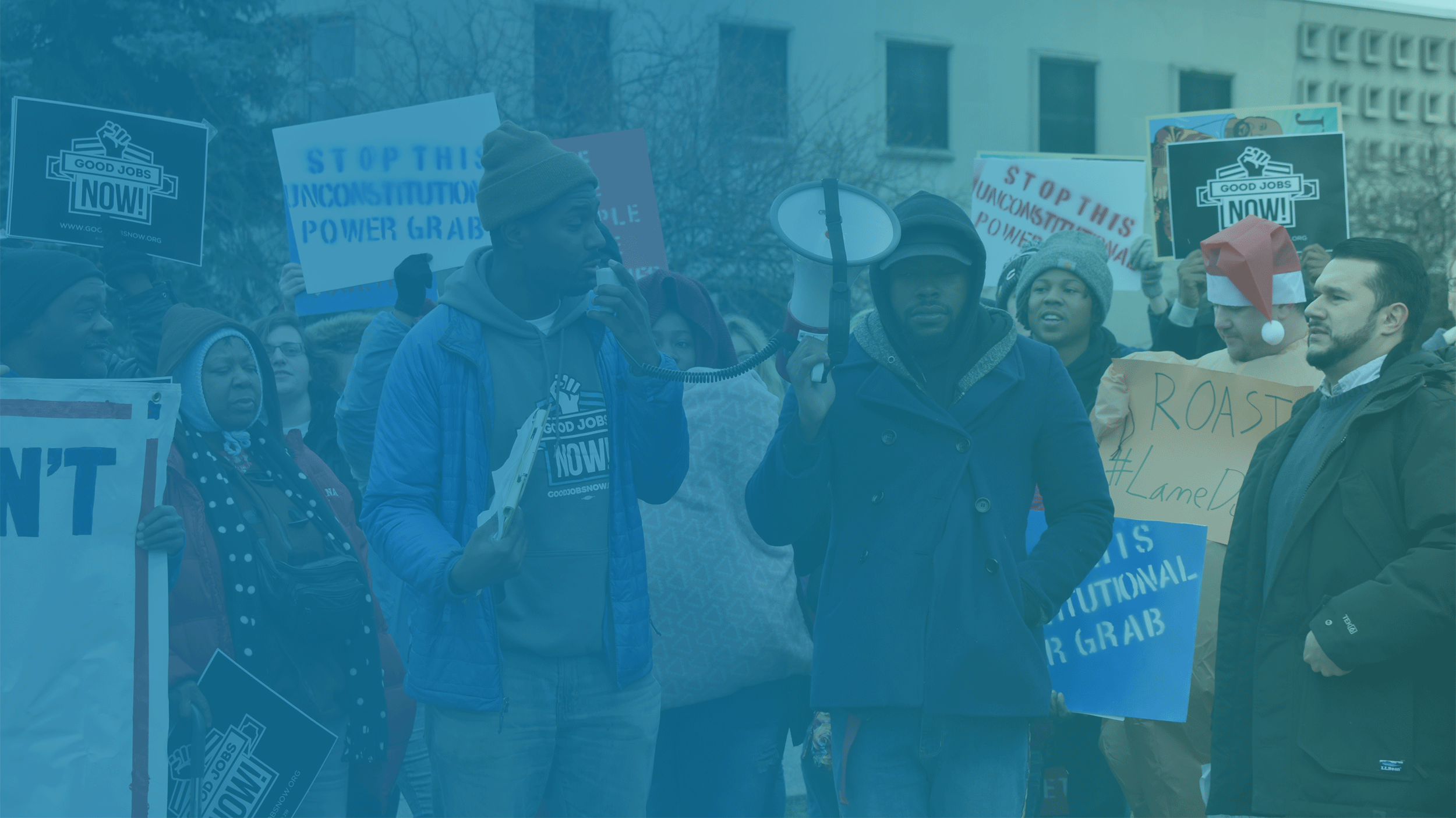Iowans Fight For and Win Support for Utility Bills
Chloe2022-11-09T21:55:50-05:00
Project Overview
After more than a year of organizing and agitating by Escucha Mi Voz West Liberty members, the West Liberty City Council voted in November 2022 to invest $150,000 of their American Rescue Plan Act allotment into community needs.The $150,000 appropriation includes $120,000 for utility relief of $400 for 300 households.
Organizing Wins
City staff and attorneys resisted council’s attempts to create an Excluded Worker Fund, leading to five former city councilors signing a letter demanding the former mayor resign. The utility relief plan was proposed as an alternative by the West Liberty Economic Development Association and almost instantly adopted by staff and council. The vote by City Council in November 2022 was backdropped by a standing-room-only crowd of dozens of West Liberty immigrant workers, meatpacking plant workers, and farmworkers, six of whom delivered public comments in Spanish about the impact the pandemic had on them and why they needed relief. “This is happening because we fought and won relief,” said Edgar Velasquez, a grocery store worker and West Liberty homeowner. “But it doesn’t matter what the city promises, only what they do. Together, we will make sure this money gets into the hands of the people.” Escucha Mi Voz members say they will work with the West Liberty Ministerial Association to distribute the promised utility relief as soon as it’s available.
Equity Goals and Outcomes
“Since 2021, Escucha Mi Voz West Liberty members knocked on doors and organized meetings, marches, and public speak-outs to pressure the city of West Liberty to create an Excluded Workers Fund for immigrant workers ineligible for previous federal relief payments. In summer 2022, when utility bills began to skyrocket due to inflation, the group’s members started bringing copies of their utility bills to city council meetings as an example of why they needed relief.”
Convergence Magazine
Chloe2022-11-04T18:39:58-04:00Convergence is a magazine for radical insights. We produce articles, videos, and podcasts to sharpen our collective practice, lift up stories about organizing, and engage in strategic debate — all with the goal of winning multi-racial democracy and a radically democratic economy.
Florida Rising Fights for Long Term Housing Solutions Using ARPA Funds
Chloe2022-11-09T21:58:18-05:00
Each year tourism brings in billions to Florida, especially in Central Florida where Disney World resides. This summer the tourism industry bounced back, but there was one problem—the labor shortages experienced during the pandemic continued. While there are many reasons folks would not return to work in hospitality while COVID still abounds, one thing is clear: the housing affordability crisis is not helping to keep workers in the state.
But a rent stabilization initiative on the ballot in Orange County in this upcoming Midterm election could help make a big difference.
I live in Florida and personally know a few families that decided to leave the state because they could no longer afford their rent, especially after the rent prices increased. Not to mention the devastation that Hurricane Ian caused. That’s why I’m in favor of the ballot initiative that would keep people housed while Florida Rising and lawmakers work together to use the county’s State and Local Fiscal Recovery Funds from the American Rescue Plan to provide longer term solutions like renter protections, landlord accountability and a comprehensive renters’ bill of rights.
The American Rescue Plan Act (ARP) is a federal economic stimulus bill passed by Democrats in Congress and signed into law by President Biden in March 2021. The legislation provided more than $40 billion in funding to develop and support emergency rental assistance and housing vouchers, homeless assistance and supportive services system, homeowners assistance fund, housing counseling, and special emergency assistance for rural housing across the country.
Back in August, Orange County’s Board of County Commissioners approved a rent control ordinance, which in November will go to voters for approval. The rent stabilization ballot initiative limits rent increases in multi-unit buildings to the annual increase in the Consumer Price Index. The ordinance doesn’t apply to luxury units, single family homes or vacation rentals. If the ordinance is passed, landlords who violate it could face fines of up to $1,000 per day up to $15,000 per offense.
After the approval of the rent control ordinance, the Florida Apartment Association and the Florida Association of Realtors sued Orange County in an attempt to deter the ballot initiative aimed at limiting how much landlords can increase rents. The Florida Apartment Association claims that Orange County commissioners are not able to prove that there is a housing emergency that warrants rent control in their county.
It is shocking that the Florida Apartment Association is making this claim, when according to Orange County commissioners the asking-rent-per-unit in Orange County has grown from $1,357 in 2020 to $1,697 in 2021, a 25% increase—the highest increase since 2006, and the county has a shortage of as many as 26,500 housing units. For low-income Orange County residents who are already struggling to afford basic necessities, any type of rent increase is detrimental to their daily survival.
Thankfully, there are social justice groups like Florida Rising on the ground working diligently to advocate on behalf of tenants. Florida Rising has created Orange County Justice on Every Block, a platform serving as a call to action for their community and local leaders. Their mandate to urgent action is to ensure safe housing and ensure that everyone has a roof over their heads. The group’s goals for Orange County include mandating a 90-day eviction notice period for tenants who are pregnant or have children, a timely distribution of the federal emergency rental assistance, funding for an eviction diversion program and acknowledging the housing state of emergency so voters can decide on a one-year rent freeze.
During a commission meeting, Stephanie Porta, cofounder of Florida Rising stated “For years, renters have been asking this commission to do something about the upcoming emergency we are in right now, corporate landlords, real estate investors and developers are raising prices and making record profits while hardworking Orange County residents are priced out of their communities.”
It’s simple—if we want to keep people in the state to drive the success of our tourism industry, then we need to make sure they have safe and affordable housing and we can start by voting for the rent stabilization ballot.
Originally published on ChangeWire.org.
Louisianans Come Together to Call for ARP-Funded Equitable Recovery Plan
Chloe2022-09-07T13:53:08-04:00A Recovery Agenda for Louisiana
Chloe2022-08-08T20:18:35-04:00This Recovery Agenda is centered on some key priorities as Louisiana comes out of the pandemic and continues to rebuild from Hurricanes Laura and Ida: supporting workers; addressing housing needs; investing in families and poverty reduction; helping children; and making our government and communities more resilient. It was developed in partnership with advocates and community leaders across Louisiana, with the goal of building a more inclusive and equitable recovery.
Louisianans Come Together to Call for ARP-Funded Equitable Recovery Plan
Chloe2022-08-11T16:54:53-04:00Project Overview
The Louisiana Budget Project brought together 17 organizations to draft and promote a Recovery Agenda for Louisiana. It called for investing federal pandemic aid to support workers, address housing needs, invest in families and poverty reduction, and help children. “Louisiana has a once-in-a-generation opportunity to solve some long-standing problems,’’ Louisiana Budget Project executive director Jan Moller said. “But that can only happen if we focus our rebuilding efforts on the communities and people that have suffered the most from the Covid pandemic and natural disasters.”
Community-Centered Process: Coming together to avoid the failures around the use of Hurricane Katrina aid
The Recovery Agenda for Louisiana reflects the collective effort of coalition members devoted to economic, racial, and environmental justice. The coalition includes organizations focused on affordable housing, children’s issues, workers’ rights, environmental justice and more. These groups recognized that the last time the state received substantial federal aid – following Hurricane Katrina – policymakers squandered the money with giveaways to big business and tax cuts for the rich. These poor choices led to years of budget cuts that left Louisiana workers and families even further behind. The coalition was committed to avoiding a repeat, and so they developed a comprehensive agenda and presented it to policymakers in advance of the state’s budget session. The proposals had a few specific budget asks depending on projects or previously existing programs but were generally intended to serve as a starting point for negotiations with legislators.
Organizing Wins
The Louisiana Recovery Plan coalition had notable successes. The state budget adopted for Fiscal Year 2023 uses $27 million in federal funds for early childhood education programs and $33 million for workforce training related to health care. Early childhood education and child care funding were explicit asks made by the Governor in the executive budget, and the paid leave request was a result of a deal cut by the Speaker and House Dem Caucus Chair. In addition, two proposals from the Recovery Agenda were funded: Supporting the Empowering Families to Live Well Council, which will help the state advance policies that address poverty, and $500,000 for an actuarial study of a paid family and medical leave program. The Live Well funding was achieved thanks to the State Association of Catholic Bishops, who was a partner organization. The budget creates the potential for even greater future investments in an equitable recovery and offers a framework for continued organizing of the Recovery Plan coalition.
Equity Goals
The Recovery Plan reflects a comprehensive vision to help residents hurt the most by the pandemic and to lay the groundwork for addressing long-standing economic and racial inequities. It calls for, among other things: premium pay for essential but low-wage workers who provided vital services during the pandemic; a new paid family and medical leave program that will help millions of workers and put the state in a better position to weather future downturns; both emergency rental assistance and funds to help residents repair damage remaining from prior hurricanes; extensive investments in children from birth-to-age three; student loan forgiveness; and funds to build primary health care clinics in underserved communities. The coalition is committed to fighting for this vision for years to come.
Winning Tenant Right to Counsel Through ARPA Funds
michael2022-08-11T16:55:29-04:00Project Overview
Detroit Action has been calling for a robust affordable housing plan in Detroit that includes Right To Counsel for the past three years. The Right to Counsel ordinance would guarantee free legal representation for low-income residents facing evictions and other housing-related legal problems. After years of organizing, In May the Detroit City Council approved the Right to Council ordinance that would use ARPA funds to pay for the measure for the next three years.
Community-Centered Process
Through building a community-led coalition, housing justice advocates and organizers across Detroit came together and aligned to fight for right to counsel because we saw that as eviction moratorium ended renters were not going to be supported in being able to maintain their housing through the court system nor be given affordable housing options. The coalition agreed on endorsing specific housing justice candidates for city council. Once our champions were in office various groups lobbied while Detroit Action and other groups engaged in a three-month long mobilization campaign, driving community members to call their local representatives, submit public comments, and attend public hearings on the use of funds.
Organizing Wins
Our approach to organizing was to keep the most impacted folks at the table, directing us toward what we needed to demand. And through that we were able to craft our messaging, strategy and narrative around their lived experience. We galvanized the community to act because this was happening to too many Detroiters. The campaign is not over. We know that what was passed now was an attempt to ease the pressure off of passing true housing justice centered policies. We won a short term goal, but will keep organizing until this program is fully funded and adequate enough to truly impact on the housing disparities in Detroit.
We worked with the following organizations and groups under the Right to Counsel Coalition: United Community Housing Coalition; Detroit Eviction Defense, Michigan Legal Services, Lakeshore Legal Aid, Dykema, State Bar of Michigan, Ford Foundation.
Equity Goals
Detroit Action is a union of Black and Brown, low and no-income, homeless and housing insecure Detroiter fighting for housing and economic justice. Our organization is a grassroots and member-led, multigenerational, community-based organization fighting for real political power.
The goal of the campaign was to highlight the inequities of housing expansion in Detroit. Over the past 5 years we’ve seen renters across the city, especially in low-income Black and Brown communities, live in increasingly uninhabitable homes and are still forced to pay higher rent or face homelessness. The campaign’s goal was to highlight this structural problem, call out our elected officials to fund people first during the 2022–2023 budget cycle, especially since over 18,000 eviction cases were filed in 2020 alone.
The Unlikely Coalition that Won $20 Million of ARP Funds for Affordable Housing in Maine
admin2022-08-11T16:53:34-04:00Project Overview
For weeks, labor, climate, and housing organizers in Maine had been collaborating on a bill for a housing bond. When the Biden administration dropped one of the largest buckets of money into the state budget in decades through fiscal recovery funds as part of the American Rescue Plan, these advocates saw a new opportunity to fund their priorities. They set their sights on securing $100 million in ARP funds for more affordable housing with higher labor and energy standards.
There were a lot of priorities to juggle, Cate Blackford of Maine People’s Alliance said. The coalition had a hardline: “We would not compromise on labor or efficiency standards or on ensuring the new housing would serve those who needed it most,” she said.
It was especially difficult to navigate how to strengthen work standards for the new housing projects. “Because finance packages are so complex, adding in any additional requirements on the projects made it impractical for some of the contractors,” Blackford explained. And builders, like nearly every sector, were affected by Covid-related worker shortages.
Community-Centered Process
Each member of the coalition used their unique powers to move legislators. Labor organizers leaned in heavily on Senate leadership. And once the green builders got into the mix and said they would take on the projects with higher labor and efficiency standards, their coalition grew even more powerful. While labor threw down their political power, the green builders made phone calls to their networks, and affordable housing advocates organized lobby days and ran social media campaigns to engage the public.
Organizing Wins
In the end, they secured $20 million in ARPA funds for affordable housing that were — for the first time ever — qualified with higher energy efficiency and labor standards. But they made a mistake, Blackford said. Because many Senate leaders were hearing so often from the labor end of the coalition, they knew they had to keep the higher work standards in their legislation. But when leadership moved the proposal from the original legislation into the budget, the energy efficiency standards were inadvertently not included.
“While this was disheartening when it happened, the end result was actually much more powerful,” Blackford said. The coalition continued advocating through the rulemaking process and ultimately passed an amended version of the original bill to maximize the energy efficiency standards for all new affordable housing.
Equity Goals
While a huge and necessary investment, the ARP funds were a one-time infusion of cash, so the next step for Maine People’s Alliance is a push for more sustainable money. Namely, moving more of the state budget from general funding into housing to the tune of $20 million a year and paying for housing with funds from the estate tax. They’re also working with groups like the Maine Immigrant Housing Coalition to make it easier for affordable housing projects to get permits and establishing a new state voucher program that is more flexible and can serve folks regardless of their immigration status.
And Blackford sees a definite future for this coalition of labor, environmental, and housing groups in Maine, even if it wasn’t an easy road. “We had to build a lot of trust and work out the details together. Those back-and-forth conversations created a lot of buy-in from everyone in the coalition,” said Blackford.
They now have the frontline formation to take on other issues that are important to all of them, she said, like access to clean water and project labor agreements on renewable energy projects.
This story originally published at ChangeWire.org





